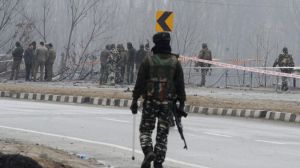Drugs, docs denied to dispensaries
NEW DELHI, March 31: The dispensary at Madipur JJ colony in west Delhi, which sits in the middle of garbage dumps, gets as many as 200 pa...

NEW DELHI, March 31: The dispensary at Madipur JJ colony in west Delhi, which sits in the middle of garbage dumps, gets as many as 200 patients every day. As it gets hotter, the number is expected to swell to 300. Two doctors attend to patients here, but most of the people only know Dr P.K. Mahapatra’s name. Until recently, Mahapatra was the only doctor at this dispensary – before he himself was taken ill. “Dr Mahapatra sees around 200 patients between 11 a.m. and 1 p.m. on days when the other doctor is on leave,” says a nurse at this dispensary.
One doctor is said to be running the show in each of the 38 dispensaries in north Delhi. As Dr Asha Agarwal, chief medical officer for north Delhi’s dispensaries, says: “When a doctor goes on leave, we face major problems.”
Moreover, these dispensaries are always short of drugs. Doctors say they get only 50 per cent of the medicines they ask for. Most Kalyanpuri residents either go to the Lal Bahadur Shastri Hospital or a private practitioner. Their reasons: “Dawa puri nahi dete hain (they don’t give enough medicines)” or “dawa sahi nahi dete hain (they don’t give proper medicines.”
The health department admits that “they are recruiting more doctors”, but makes no promises regarding the short supply of medicines. “We always fall short of antibiotics,” says Dr E.M. Sahoo, who practises at the Trilokpuri dispensary. “Communicable diseases are rampant in this city. In fact, most diseases are caused due to dirty surroundings. After April, there will be a flood of cholera cases.”
Dr M. Dash, who attends to around 200 patients every day in the Kalyanpuri area of east Delhi along with another doctor, says that to make primary health care effective the dispensaries need not only doctors and medicines but also a card system for all patients. “Without a card, neither we nor the specialists we refer a patient to have a clue about the person’s medical history,” he says.
The doctors also complain that while they are trying to cope with the large number of patients, the nurses sit idle most of the time. They say that the nurses, two each in every dispensary, do nothing all week except for Wednesdays, when children are given polio drops.
“At the most, they give five or six injections every day. They are supposed to be going on field visits to spread awareness about personal hygiene, nutrition and birth control. But they just don’t go out,” says a doctor in one of the dispensaries.
Photos





- 01
- 02
- 03
- 04
- 05


























